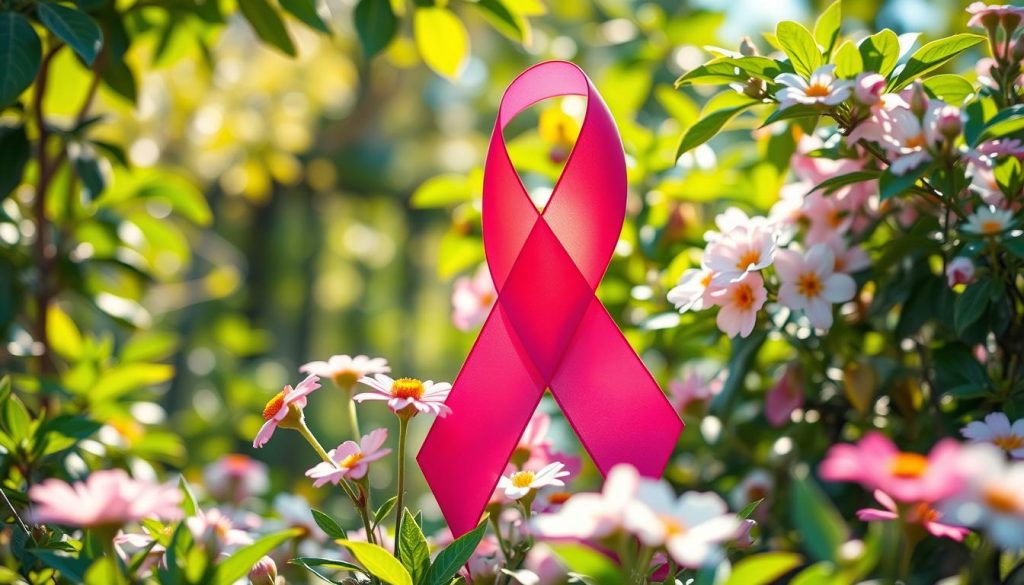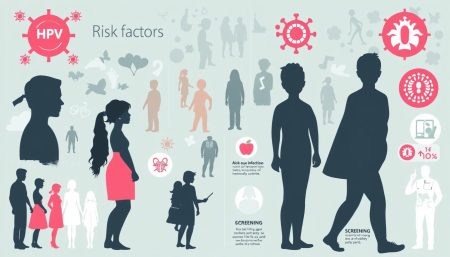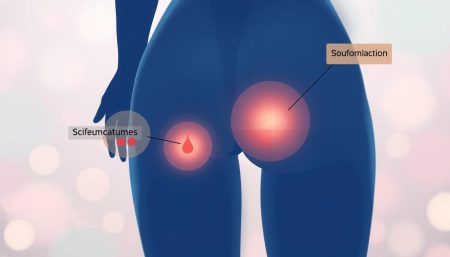When someone is diagnosed with anal cancer, many questions come up. People worry about survival. The term “anal cancer” can make people feel scared or unsure, especially when they hear about “anal cancer mortality rate” and “can you die from anal cancer?” It’s okay to have these worries, but it’s also important to talk about them openly and honestly.
Recently, doctors have made big steps in treating anal cancer. This has led to better survival rates for many patients. This article aims to help people understand anal cancer better. Knowing about it can help people see why early detection and treatment are so important.
Key Takeaways
- Anal cancer, while a serious diagnosis, can often be treated successfully with early detection.
- Treatment breakthroughs have led to an improved anal cancer survival rate.
- Individuals diagnosed with anal cancer should be informed about their condition, including its potential fatality, to make empowered healthcare decisions.
- Compassionate communication is essential when discussing sensitive topics like the anal cancer mortality rate.
- Education and support align with the mission to guide and comfort those affected by cancer.
Overview of Anal Cancer
Anal cancer is a serious disease that starts in the anus. It’s not very common, but knowing about it is important. This is because it can be very serious.
What is Anal Cancer?
Anal cancer happens when bad cells grow in the anus. The anus is the last part of our gut. Knowing the anal cancer symptoms early is very important. Symptoms include bleeding, pain, lumps, and changes in bowel movements.
To find out if you have anal cancer, doctors use exams, scans, and biopsies. Finding it early can help a lot with treatment and survival.
The Increasing Prevalence of Anal Cancer
Anal cancer cases have been going up over the years. This makes it even more important to know about anal cancer risk factors. Big risks include HPV, smoking, and a weak immune system.
Health groups are working hard to teach people how to prevent it. They also push for regular health checks to fight this trend.
| Risk Factor | Impact on Anal Cancer |
|---|---|
| HPV infection | Significantly increases risk |
| Smoking | Raises likelihood of developing anal cancer |
| Immunodeficiency | Higher incidence rates of anal cancer |
Can You Die from Anal Cancer
Talking about anal cancer and its advanced stages is key. It shows how serious it is and why seeing a doctor early is important. Anal cancer is usually treatable early on but can be deadly if caught late or ignored. This part talks about how late-stage anal cancer and advanced anal cancer can cause serious problems. It shows why finding and treating it early is so crucial.
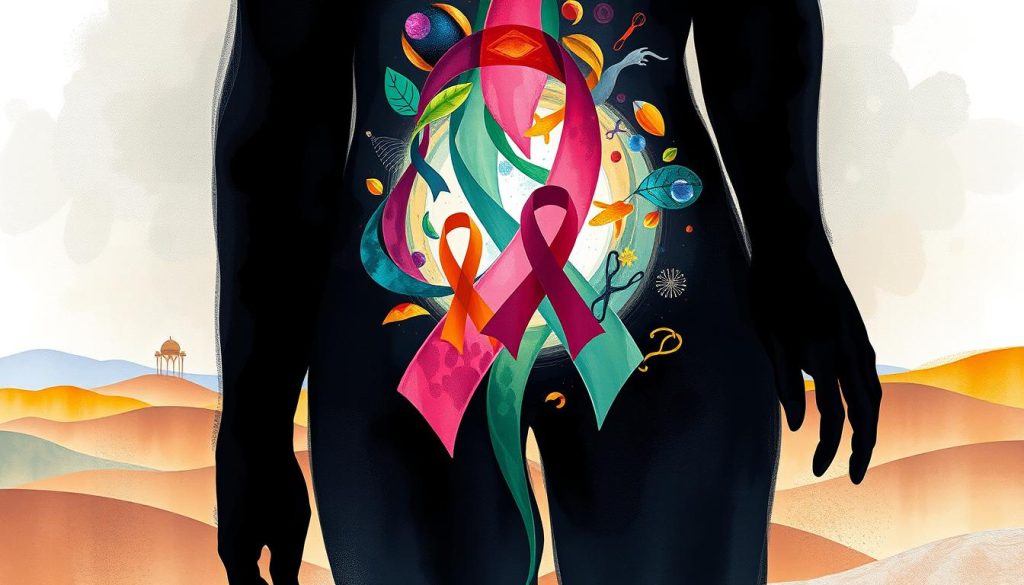
Early-stage anal cancer has a good outlook, but things change as it gets worse. When it turns into advanced anal cancer, it spreads to nearby areas and lymph nodes. This makes treatment harder and survival rates lower. This stage is a big worry for both patients and doctors.
People who have fought late-stage anal cancer share stories of both struggle and hope. They talk about the importance of constant doctor visits and new treatments. These stories show the disease’s seriousness but also the strength of those fighting it.
Preventative steps and regular checks are key to avoiding serious problems from anal cancer. Doctors keep saying how important it is to know the early signs of anal cancer. This can help lower the death rate from its advanced stages.
Knowing about anal cancer, especially in its advanced stages, changes how we deal with it. It calls for more research and better treatments. This could make a big difference for those facing this tough disease.
Anal Cancer Mortality Rate
The death rate from anal cancer tells us a lot about how well treatments work and how patients do. Even though it’s not as common as other cancers, the survival rates can change a lot. This depends on many things.
New medical tech and treatments have made a big difference in anal cancer death rates. Better screening, more effective treatments, and more awareness have all helped. But, getting good healthcare is still key for patient results.
Looking at the death rate trends over the years shows how medical progress has changed survival chances. Today’s anal cancer treatment options focus on treating each patient differently. This shows how important it is to tailor care to each person.
- HPV vaccines have cut down on the main risk factors.
- Better imaging and tests help catch and treat cancer early.
- New radiation and surgery methods make treatments more effective.
Looking at the anal cancer survival rate from the 1990s to now shows a big improvement. Thanks to better treatments, patients are living longer and have more hope.
| Decade | Mortality Rate (%) | Survival Rate (%) |
|---|---|---|
| 1990s | 35 | 65 |
| 2000s | 30 | 70 |
| 2010s | 25 | 75 |
| 2020s | 20 | 80 |
It’s very important for doctors and patients to know about anal cancer treatment options and how they affect survival. This knowledge helps make better treatment choices. It also encourages a more active approach to health care. This could lead to better results for those with this tough disease.
Understanding Anal Cancer Survival Rate
Survival rates for anal cancer are more than just numbers. They show how crucial early detection of anal cancer and anal cancer prevention are. These rates help guide those newly diagnosed and their doctors.
Factors Influencing Survival Rates
Many things can change anal cancer survival rates. Early detection is key. It means better treatment options and higher chances of survival.
Age and health also play big roles. How well someone can handle treatment depends on these factors. This highlights the need for regular health checks and knowing the signs of anal cancer.
Survival Rate by Stage
The stage of anal cancer diagnosis greatly affects survival chances. Early stages have better survival rates than later ones. The five-year relative survival rates for anal cancer are best when caught early.
| Stage | Survival Rate |
|---|---|
| Localized | High |
| Regional | Medium |
| Distant | Low |
Boosting awareness and education on anal cancer prevention can help improve survival rates. By focusing on prevention and early detection, we can change these numbers into better futures for many.
Recognizing the Stages of Advanced Anal Cancer
Understanding advanced anal cancer means knowing its stages and challenges. This serious disease stage calls for more aggressive treatments. It also brings up thoughts of end-of-life care.
What Constitutes Advanced Anal Cancer?
Advanced anal cancer is stage III or IV. It has spread beyond the anus and may reach lymph nodes or distant organs. This stage is key because it affects treatment and patient outlook.
Challenges in Treating Advanced Stages
Treating advanced anal cancer is tough. The goal shifts to easing symptoms and improving life quality. Intensive treatments like chemotherapy can cause severe side effects, making supportive care crucial.
| Stage | Description | Treatment Focus |
|---|---|---|
| Stage III | Cancer has spread to nearby lymph nodes. | Combination of radiation and chemotherapy. |
| Stage IV | Cancer has spread to distant organs. | Palliative measures focusing on patient comfort. |
Talking about end-of-life care considerations is vital. It helps patients and families manage the end stages with dignity. These conversations align medical care with patient values, offering comfort in tough times.
Exploring Anal Cancer Treatment Options
When someone is diagnosed with anal cancer, knowing the anal cancer treatment options is key. These options depend on the cancer’s stage and the patient’s health. They can greatly affect the anal cancer survival rate.
Anal cancer treatments include surgery, chemotherapy, and radiation therapy. Each aims to remove cancer cells while keeping quality of life in mind. We’ll look at each option and how they might affect patient health.
- Surgery: It’s often used for tumors that are small and haven’t spread. The surgery can be simple or more complex, like removing the anus, rectum, and part of the sigmoid colon.
- Chemotherapy: Drugs are used to kill cancer cells and are often paired with radiation therapy. Chemotherapy can be given before or after surgery to lower the chance of cancer coming back.
- Radiation Therapy: This method is favored for anal cancer. It uses high-energy rays to target cancer cells, trying to avoid harming healthy tissue.
Using these treatments together can boost the anal cancer survival rate. Treatment plans are tailored to each patient’s health and situation.
Research and clinical trials are also looking into new treatments. These include immunotherapy and targeted therapy, which might lead to better management and even cures for anal cancer.
Learning about the anal cancer treatment options helps those affected make informed health care choices. They can work with their medical teams to find the best approach.
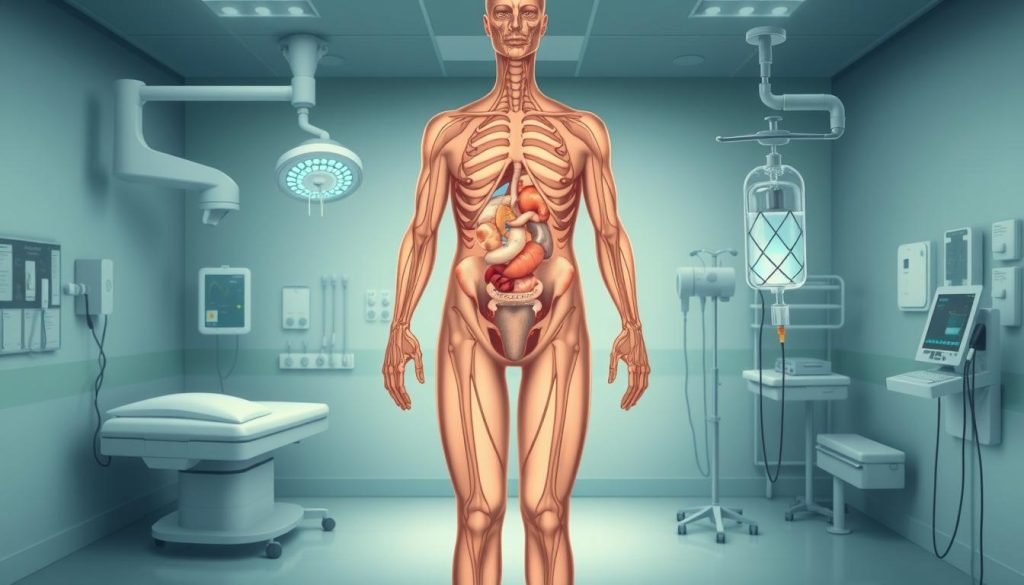
Navigating a Late-Stage Anal Cancer Diagnosis
Getting a late-stage anal cancer diagnosis is tough. It needs a lot of emotional support and a good care plan. This helps manage symptoms and keep quality of life high. We’ll look at emotional and physical support, and what to think about for end-of-life care.
Emotional and Physical Support
Emotional support is key for those with late-stage anal cancer. Having a strong support network is crucial. This includes family, friends, and professional counselors.
They offer a safe place to share feelings. This is important for mental health.
- Access to oncology social workers who can offer individual therapy and support group contacts
- Programs designed to help manage stress, anxiety, and depression
- Engagement with community resources for additional support and guidance
Physical support is about managing symptoms and side effects. Palliative care teams are vital here. They focus on easing symptoms and improving life quality.
End-of-Life Care Considerations
Talking about end-of-life care is important for late-stage anal cancer. These talks should include healthcare providers, the patient, and their family. They should focus on the patient’s wishes and comfort.
| Care Option | Description | Benefits |
|---|---|---|
| Hospice care | Provides comprehensive symptom management at home or a hospice facility | Enhances comfort, provides family support, and assists with spiritual concerns |
| Palliative hospital care | Focuses on relieving symptoms and emotional support within a hospital setting | Access to specialized medical staff and therapies tailored to late-stage needs |
| Personalized pain management plans | Includes medications, physical therapy, and alternative therapies like acupuncture | Reduces pain, improves mobility, and supports overall well-being |
It’s important for patients and families to make these decisions early. This ensures care that respects the patient’s values and preferences. It leads to dignified and compassionate care.
Conclusion
It’s crucial to focus more on anal cancer awareness to fight this disease. The survival rates vary, and the mortality rates are high. This shows how important early detection and making informed choices are.
We talked about what anal cancer is, how it’s becoming more common, and why knowing about survival rates matters. This knowledge is key to fighting this disease well.
Getting diagnosed with anal cancer is tough. But, there are anal cancer support resources to help patients and their families. With new medical techniques and treatments, there’s hope for those dealing with this illness.
People facing anal cancer show great strength and resilience. Their stories inspire us to support this cause. We can make a difference by raising awareness, offering support, and encouraging healthy habits.
Let’s come together to help those facing anal cancer. By working together, we can improve health education. This will help save lives and ensure they are lived with dignity and hope.
FAQ
Q: What is Anal Cancer?
A: Anal cancer starts in the anus, the end of the digestive tract. It can affect the cells lining the anal canal or the skin around it. There are different types, like squamous cell carcinoma and adenocarcinoma.
Q: Can You Die from Anal Cancer?
A: Yes, anal cancer can be deadly, especially if caught late. But, early detection and modern treatments can help many survive. It’s key to focus on prevention and early detection to improve chances of recovery.
Q: What Are the Symptoms of Anal Cancer?
A: Signs include bleeding, pain, itching, discharge, and changes in bowel habits. But, many people don’t show symptoms early. Regular check-ups are crucial.
Q: How is Anal Cancer Diagnosed?
A: Doctors use physical exams, anal Pap tests, biopsies, and scans like MRI or CT to diagnose. If you notice symptoms, talk to your doctor right away.
Q: What Are the Risk Factors for Anal Cancer?
A: Risks include HPV infection, smoking, being over 50, and having many sexual partners. Knowing these can help in early detection and prevention.
Q: What Constitutes Advanced Anal Cancer?
A: Stages III and IV are advanced. Stage III might involve nearby lymph nodes, and Stage IV means it’s spread to distant organs. These stages are harder to treat and have a worse prognosis.
Q: What Are the Challenges in Treating Advanced Stages of Anal Cancer?
A: Advanced anal cancer is tough to treat due to widespread disease. It can affect quality of life. Managing symptoms and making treatment decisions are key challenges.
Q: What Factors Influence Survival Rates of Anal Cancer?
A: Survival depends on the cancer’s stage, the patient’s health, and the treatment’s success. Early-stage cancers have better survival rates than advanced ones.
Q: What Treatment Options Are Available for Anal Cancer?
A: Treatments include surgery, radiation, chemotherapy, or a mix. Plans are based on the cancer’s stage and the patient’s health, aiming for the best results while considering quality of life.
Q: How Can Anal Cancer Be Prevented?
A: Prevention includes HPV vaccination, safe sex, quitting smoking, and screenings for those at risk. Talk to a healthcare provider for advice tailored to you.












